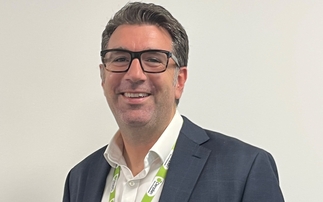Demand for healthcare cash plans is increasing, yet advisers have been slow to embrace the market. Raman Sankaran outlines the opportunities this low-cost product holds for intermediaries
Six million people in the UK hold a healthcare cash plan (HCP) and demand is continuing to rise as our understanding of health risks and requirements increases.
Despite this figure, HCPs are still a relatively unknown product. The majority of people are unaware of the generous benefits they provide ' with many mistaking them for traditional private medical insurance (PMI).
This misconception only adds to some confusion within the industry over how HCPs work, their relevance in today's modern society and what they offer in terms of benefits and commission.
They are a highly cost-effective way to provide cover for an extensive range of both expected and unexpected healthcare treatment costs.
Starting from less than £2 a week, policyholders and their families can be covered for an extensive range of everyday, essential healthcare treatments such as dental and optical care, physiotherapy, osteopathy and chiropody as well as popular complementary therapies including reflexology, acupuncture and aromatherapy.
As an additional benefit, HCPs offer cash payments towards convalescent and recuperation costs and pay a daily allowance towards the inconvenience of overnight hospital stays ' areas not normally covered by PMI or that are subject to excess payments.
Requiring no medical, benefits provided by HCPs are available to everyone, regardless of age, gender or status.
Claiming is easy, policyholders can go directly to the recognised treatment provider and be reimbursed towards the costs upon the submission of receipts, subject to policy limits.
Independent research carried out by HealthSure reveals almost 70% of people feel the onus is on them to take more responsibility for their healthcare provision, with a noticeable increase in the cost of everyday healthcare treatments such as dental and optical care.
This increased awareness of healthcare issues combined with a decrease in the availability of free immediate treatment, particularly for essential but non-life threatening areas on the NHS, highlights the relevance of the modern HCP and illustrates its future potential.
Whereas PMI insures against more serious, possibly life-threatening medical procedures, HCPs offer cash payments towards the ever-increasing cost of a range of everyday treatments.
Filling the gaps
HCPs help remove traditional cost barriers and enable policyholders to go direct for treatment knowing they will be able to claim towards the cost. They help resolve health issues and can even help identify potential health problems before they become acute.
By covering day-to-day costs, HCPs sit comfortably with PMI benefits, complementing cover and creating an effective cross-selling opportunity for intermediaries.
A huge growth area, HCPs are largely an untapped market offering great potential for intermediaries selling to both corporate and individual markets.
One of the UK's fastest growing employee benefits, businesses are beginning to recognise the benefits of HCPs and it is in the area of corporate healthcare where intermediaries have had particular success.
Relevant to all regardless of industry, salary and medical background, an increasing number of companies are providing HCPs as a corporate paid employee benefit.
Underwriting the investment made in the workforce, they help to combat absenteeism, aid motivation, generate loyalty and assist in staff recruitment and retention.
The low cost means benefits can often be provided to the entire workforce, not just key employees like company cars, pensions, bonuses and other perks which are confined to the minority. When taken up in large numbers this creates a golden opportunity for the intermediary who can enjoy repeat commission.
Knowing they can claim back the cost of treatment provides employees with the impetus to resolve healthcare problems at an early stage. Without this resource, research shows more than one-third would avoid treatment until problems became acute, requiring significantly more time off work.
Absence management
Figures for 2001 show over 700 million days were missed from work through minor aches, pains and strains while 60% of adults suffered from back pain. HCPs can help address these issues by detecting and correcting problems at an early stage. Advice and counselling is also offered for more serious issues including stress, relationship worries and bereavement through telephone helplines.
Health-related absenteeism has a significant impact on business productivity and profitability. According to the Confederation of British Industry, last year it cost companies more than £13bn. Stress-related absence accounted for £3bn alone and short-term absence accounted for 80% of all workplace sickness.
HCPs can help address these statistics offering valuable and repeatable benefits that can be used to both positively enhance the working life of employees while offering peace of mind for the employer.
The growth in the HCP market has meant providers are developing new products that provide intermediaries with new opportunities to approach potential and existing clients. Areas such as a health screening policy are being identified by providers as attractive employee benefits. In fact, recent market research conducted by Healthsure indicates 60% of employees would welcome a health screen if their employer provided it.
For intermediaries, a combination of low premiums and high perceived value make HCPs an easy sell. Offering large commission potential, they are a good door opener and provide a relatively easy sales opportunity.
The main selling points of plans are their affordability, the fact that no medicals are required and their universal relevance to individuals and companies of all profiles.
HCPs can act as an ideal door opener, or an easy cross-sell opportunity. With PMI and HCP covering different treatment areas, many companies are able to provide both benefits to employees creating more business for the intermediary.
Another selling point is the high flexibility of plans. Easily tailored to meet the needs of any organisation or individual, most HCPs are available at varying price points to suit all consumers and company budgets.
And, with little or no ongoing administration, intermediaries can enjoy repeat commission benefits with minimal inconvenience once the plans are in place.
The right support
Providers are also working closely with intermediaries to improve and further develop their products and services. According to research conducted by HealthSure, almost half of all intermediaries agree HCPs will become increasingly important to fund individual healthcare. So why do relatively few intermediaries opt to sell HCPs as part of their selected portfolio?
Subsequent research has proved this is partly due to the levels of support offered by the major providers.
In order to sell HCPs, intermediaries need to be confident they have the resource, support and backing from providers in terms of comprehensive marketing materials and technical advice.
Providers are rising to this challenge by developing bespoke packages to enable intermediaries to effectively market HCPs to both individuals and corporate clients.
To meet intermediaries' requirements, some providers have also introduced a dedicated broker helpline manned by highly-trained support teams able to provide immediate assistance and on-the-spot advice to resolve questions and enquiries.
This is proving successful and ensures intermediaries are fully equipped to maximise the market potential of HCPs.
The range of services and communication packages available to corporate clients is also being improved in the market. This ensures they have all the necessary support and marketing materials to effectively communicate the benefits of HCPs to their employees.
Unless employees fully understand the product, neither they or their employer will reap the maximum possible benefits from the plan.
Offering generous benefits for individuals and generous commission for brokers, HCPs are an underappreciated insurance product and undervalued sales opportunity.
A gradual realisation that individuals will have to take more responsibility for their future healthcare provision along with a commitment from employers to protect the health of organisations means HCPs are moving into a more prominent arena.
Intermediaries should look to add HCP products to their existing portfolio if they want to take advantage of this potentially lucrative market.
Raman Sankaran is marketing communications manager at HealthSure
COVER notes
• Cash plans offer low-cost cover for everyday treatment such as dental and optical care.
• Cash plans complement PMI ' the products can run alongside each other to fill gaps in cover
• Cash plans can be a valuable employee benefit and help control staff absence costs.











